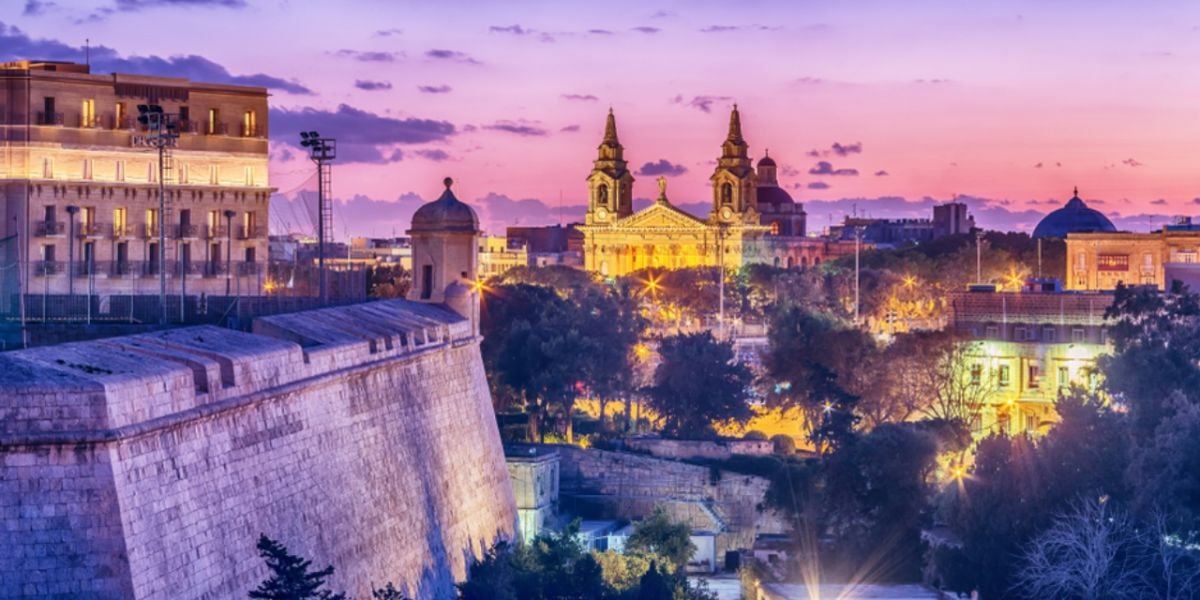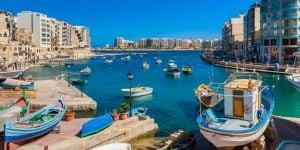
For a successful move to Malta, it's essential to know the travel conditions and whether or not you need a visa. This article tells you everything you need to know about the various types of visas available in Malta to better plan your stay, as well as visa exemptions.
In general, EU/EEA/Swiss nationals do not need a visa to travel to Malta if their stay does not exceed 90 days. However, nationals from third countries (non-EU/EEA/Swiss) must apply for a visa, depending on the duration and purpose of their stay in the country.
Visa exemption for EU/EEA/Swiss nationals in Malta
Since they have the right to move freely within the European Union, European Union (EU), European Economic Area (EEA), and Swiss nationals do not need a visa to travel to Malta. They only need to present their personal national identity card or passport, which must be valid.
However, if these same nationals wish to stay in Malta for more than 3 months, they must apply for a residence permit.
Other visa exemptions for Malta
Some countries have signed a visa liberalization agreement with the Schengen States (including Malta). Citizens of the following countries do not need a visa for a short stay in Malta (less than 3 months): Albania, Andorra, Antigua and Barbuda, Argentina, Australia, Bahamas, Barbados, Bosnia and Herzegovina, Brazil, Brunei, Canada, Chile, Colombia, South Korea, Costa Rica, Dominica, East Timor, El Salvador, United Arab Emirates, United States, Georgia, Grenada, Guatemala, Honduras, Hong Kong, Israel, Japan, Kiribati, Kosovo, Macao, North Macedonia, Malaysia, Marshall Islands, Mauritius, Mexico, Micronesia, Moldova, Monaco, Montenegro, Nauru, Nicaragua, New Zealand, Palau, Panama, Paraguay, Peru, United Kingdom, Saint Kitts and Nevis, Saint Lucia, Saint Vincent and the Grenadines, Solomon Islands, Samoa, San Marino, Serbia, Seychelles, Singapore, Taiwan, Tonga, Trinidad and Tobago, Tuvalu, Ukraine, Uruguay, Vatican, Venezuela.
Types of visas and conditions for non-EU/EEA/Swiss nationals traveling to Malta
Third-country nationals can choose from four types of visas for Malta, namely the Airport Transit Visa (ATV), the transit visa, the short-stay C (Schengen) visa, and the national long-stay D visa.
Airport Transit Visa for Malta
The Airport Transit Visa (ATV), or type A visa, allows you to stay only in the international transit area of the airport. This visa applies to nationals from a specific list of countries: Afghanistan, Bangladesh, Democratic Republic of Congo, Eritrea, Ethiopia, Ghana, Iran, Iraq, Nigeria, Pakistan, Somalia, and Sri Lanka.
When to apply for an Airport Transit Visa?
You must apply for an Airport Transit Visa if you are passing through Malta airport to catch a connecting flight to your non-Schengen destination country. This visa will then allow you to wait in the international area of the airport.
Note that the Airport Transit Visa does not allow you to enter Maltese territory: you are limited to the international area of the airport.
The following documents must be provided when applying for an ATV:
- A valid visa (if necessary) for the final destination;
- The plane ticket to the final destination.
Maltese transit visa
If you need to disembark at a Maltese port and then reboard the ship, be transferred to another ship bound for a foreign port or location, or board a ship already in Malta, you will need to apply for a Maltese transit visa.
The applicant must provide the original and a photocopy of the seaman's book, a letter of invitation from the shipping company, a work contract, the ticket to the final country they are traveling to, and the visa for the final destination (if necessary).
The Schengen visa (short stay visa C) for Malta
The visa C or Schengen visa allows you to stay in Malta or any other Schengen Area Member State for a maximum of 90 days over a 180-day period. However, note that the validity period of the Schengen visa depends on the duration of your stay (up to five years). It can therefore be issued as follows:
- A single-entry visa: allowing you to make one uninterrupted stay during the period specified on the visa, not exceeding 3 months.
- A double-entry visa: allowing you to make two stays during the period specified on the visa, not exceeding 3 months over a total of 6 months (90/180 rule). This means that the visa holder can leave the Schengen territory and return once.
- A multiple-entry visa: allowing you to make multiple stays during the period specified on the visa, not exceeding 3 months over a total of 6 months. The number of stays in the Schengen area is unlimited as long as the visa holder complies with the 90/180 rule.
There are three types of multiple-entry visas:
- The one-year multiple-entry Schengen visa: Thanks to this visa, you can enter Malta as many times as you wish, provided you do not stay more than 90 days in this period. You can apply for it if you have legally obtained and used three visas in the previous two years.
- The two-year multiple-entry Schengen visa: This visa allows you to enter the Schengen area (and thus Maltese territory) as many times as you wish over a two-year period, provided you comply with the 90/180-day rule. You can benefit from it if you have had a one-year multiple-entry visa in the previous two years.
- The five-year multiple-entry Schengen visa: This visa allows you to enter the Schengen area (including Malta) as many times as you wish over a five-year period, as long as you comply with the 90/180-day rule. You can apply for it if you have already obtained a multiple-entry visa valid for at least two years in the previous three years.
Remember to have your passport stamped by border police at each entry and exit from the Schengen area. This will prove that you comply with the 90/180 rule.
National long-stay visa (visa D) for Malta
The national long-stay visa, or visa D, allows you to stay for more than 90 days in the Schengen area, including Malta. It applies to foreign nationals who intend to study or work in Malta.
The national long-stay visa allows you to stay in Malta for one year, then apply for a residence permit.
The visa D does not depend on any type of agreement, so you must apply for it with the Central Visa Unit of the consulate of your home country in Malta.
Here are the different types of long-stay visas, to be selected depending on the reason for your stay in Malta:
- Work;
- Studies;
- Family reunification;
- Business;
- Internship;
- Sports events;
- Religious reasons;
- Medical reasons;
- Cultural reasons;
- Digital nomadism;
- Diplomatic visits;
- Working holidays;
- Humanitarian reasons.
Under the free movement agreement, Schengen Area Member State nationals do not need a visa to travel to Malta.
EU/EEA nationals intending to live and/or work in Malta can do so under the free movement agreement.
Visa application to travel to Malta
Non-European nationals who need a visa to enter the country must follow certain steps to apply for a visa.
To apply for a Schengen visa, you must:
- Have a valid travel document (passport), which must be valid for at least three months after the end of the stay, or valid for at least eight months, and less than ten years old;
- Provide a passport-sized color photo on a white background;
- Be able to pay the required fees.
In the case of a tourist stay, you will also need to provide the following:
- A valid return ticket;
- Proof of sufficient funds;
- Proof of hotel reservation or other similar accommodation or a written letter from your host in the case of a guesthouse;
- Proof of health or travel insurance with a minimum coverage of €30,000.
In the case of a business stay:
- A valid return ticket;
- Proof of sufficient funds;
- A letter of invitation from the company or partner hosting you during your visit to Malta, stating their address and the dates of your visit;
- Proof of the business relationship between you and your host;
- A certificate from the local Chamber of Commerce proving the existence of said business activity; and/or information about the event/trade fair/conference you will be attending in Malta, including detailed information about the host/organizer of the event (full address, duration of the event, justification of your participation).
- A letter from your own company indicating your status on site;
- Proof of hotel reservation or similar proof if you have chosen other accommodation;
- Proof of medical or travel insurance with a minimum coverage of €30,000.
Students must provide the following documents:
- A valid return ticket;
- Proof of sufficient funds;
- A letter of acceptance from your university or program stating that you have enrolled and other details related to your admission and courses;
- Proof of accommodation for the duration of your studies;
- Proof of medical or travel insurance with a minimum coverage of €30,000.
How to provide proof of sufficient funds when applying for a Schengen visa?
Anyone applying for a Schengen visa must prove they have enough money to support themselves for the duration of their stay.
There are several recognized ways to prove your financial sufficiency:
- A personal bank statement;
- A credit card;
- Cash;
- Traveler's checks;
- Pay slips;
- Proof of employment;
- A document stating that a sponsor is willing to cover your expenses during your stay;
- Proof of prepaid transport or accommodation, etc.
When applying for a visa for Malta, you must prove that you have at least €48 for each day you plan to stay in Malta.
The Schengen visa application fees are €90 in 2025. For children aged 6 to 12, it is €45. The visa is free for children under 6 years old.
The application must be made at least one month before the planned departure date.
Extension or renewal of a stay visa in Malta
First of all, there is no renewal process for Schengen visas, as they can only be extended.
Remember that the Schengen visa (short stay visa C) is valid for 90 days over a 180-day period (the 90/180 rule).
In most cases, the extension of the Schengen visa is only granted for unique reasons (force majeure, humanitarian reasons, and compelling personal reasons).
Force majeure refers to uncontrollable and unexpected events preventing you from returning to your country of residence. This may include war, work stoppages, extreme weather conditions, violent demonstrations, or the absence of flight connections.
Humanitarian reasons generally refer to medical reasons.
Compelling personal reasons may be an unplanned marriage on your part or of a close relative, the death of a family member.
Here are the conditions to meet to extend a Schengen visa:
- Your situation must be considered extreme (an emergency). For example, you are so ill that you cannot leave Malta.
- You must provide credible evidence to demonstrate that you need a visa extension. This may include physical proof, such as official documents from your doctor expressing the severity of your condition if you are currently hospitalized.
- Your passport or travel document must be less than 10 years old and valid for at least six months.
- You must provide proof that you can continue to support yourself financially during the extension period.
- You must extend your international health insurance to cover you during the extension period (if it does not already cover you).
Please note that your extension request will almost certainly be rejected if the reason given hides any intention of residing in Malta.
Once extended, your Schengen visa will be valid for an additional 90 days.
The Schengen visa extension takes the form of a visa sticker, which is affixed to your passport or travel document.
The Schengen visa extension fee is €30. These fees will be waived if the applicant proves they cannot return home for humanitarian reasons during the validity period of their visa.
Finally, note that there are other ways to extend your stay in Malta, depending on your personal situation:
- Apply for a national long-stay visa (visa D);
- Seek asylum if you fear that returning to your country of origin could lead to serious injury or death.
Useful links:
Government of Malta - Moving to Malta
Public Services of Malta - Visa application for third-country nationals
We do our best to provide accurate and up to date information. However, if you have noticed any inaccuracies in this article, please let us know in the comments section below.








